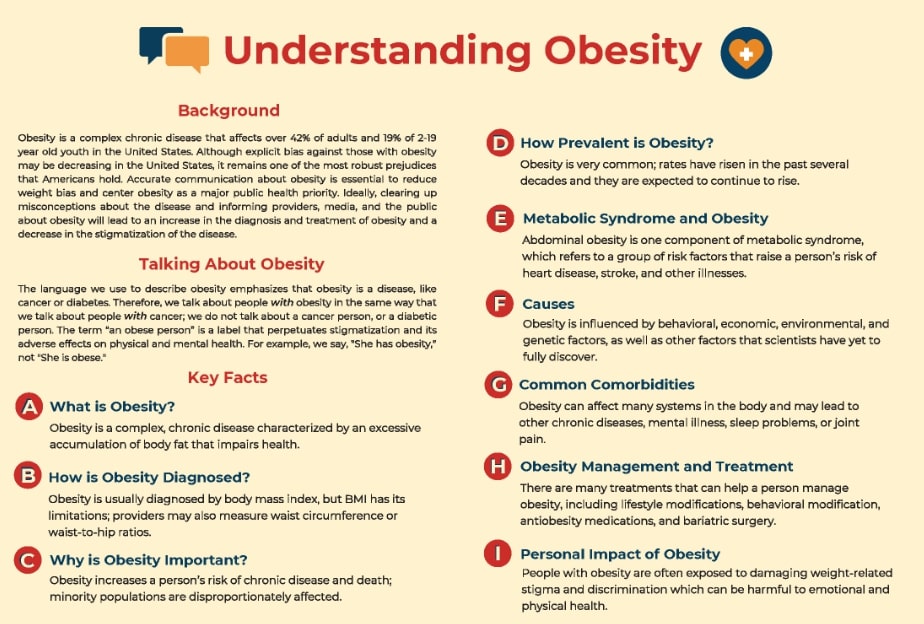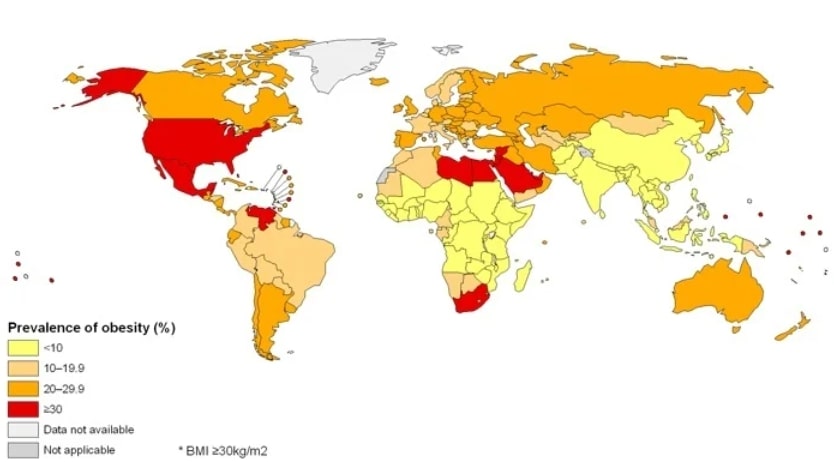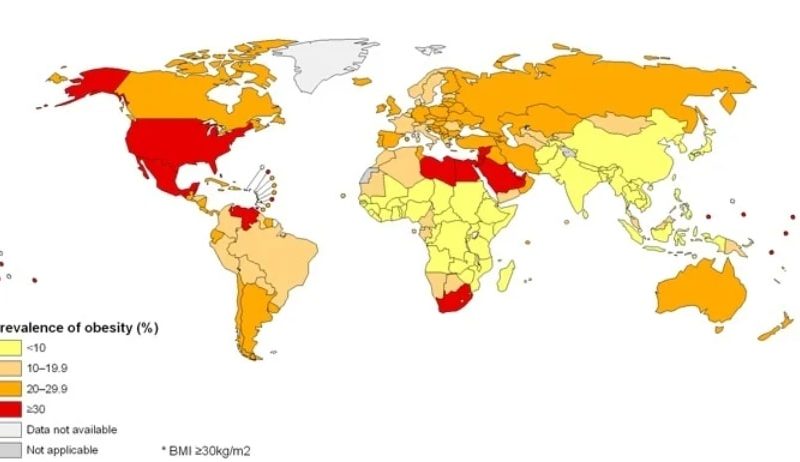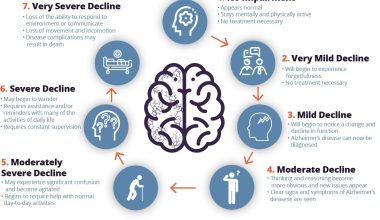As an Amazon Associate, I earn from qualifying purchases
Obesity is more than just an individual health issue; it’s a growing concern that impacts the entire world. With lifestyle changes, urbanization, and economic development, obesity rates have been on the rise globally. As we step into 2024, it’s crucial to address this epidemic by understanding the scale of the problem, exploring why it’s significant, and discussing actionable steps individuals and communities can take to mitigate its impact.
Page Contents
ToggleUnderstanding Obesity: A Global Perspective
Obesity is defined as abnormal or excessive fat accumulation that presents a health risk. A person is considered obese when their Body Mass Index (BMI) — a calculation derived from an individual’s weight and height — is 30 or above. This condition is a primary contributor to a host of chronic diseases, including diabetes, heart disease, stroke, and some types of cancer.
World Obesity Rates 2024
As of 2024, world obesity rates have continued to climb, affecting both developed and developing nations. While exact figures may vary, the trend is clear: more of the world’s population is obese than ever before. This increase is attributed to a variety of factors, including sedentary lifestyles, high-calorie diets, and genetic predispositions, among others.
Why is Obesity Important?
Understanding world obesity rates, how to avoid obesity, why obesity is important, and how can obesity be prevented is crucial for several reasons. First, obesity significantly increases the risk of numerous non-communicable diseases, leading to premature death and disability. Second, it places a considerable economic burden on healthcare systems due to the increased need for treatment and management of obesity-related conditions. Lastly, obesity affects mental health, leading to a decrease in quality of life and increased rates of depression and anxiety.
Obesity is a pressing health issue that goes beyond mere appearance. Recognizing its importance is crucial for various reasons. Firstly, obesity significantly heightens the risk of developing severe health conditions like diabetes, heart disease, and certain cancers. Managing obesity becomes imperative to mitigate these health risks and improve overall well-related conditions, coupled with lost productivity and absenteeism, emphasize the urgency of addressing this issue. Moreover, obesity can take a toll on mental well-being, contributing to low self-esteem, depression, and anxiety.

Prioritizing the management of obesity not only enhances physical health but also promotes mental well-being and quality of life. Additionally, obesity has become a significant public health crisis on a global scale. Without intervention, obesity rates are projected to rise further, leading to additional health complications and societal burdens. Recognizing the interconnectedness of obesity with various social, economic, and environmental factors underscores the need for a comprehensive approach. By addressing obesity, we can also tackle related issues such as food insecurity, inequality, and environmental sustainability. In conclusion, understanding the importance of obesity is essential for implementing effective strategies to prevent and manage this pervasive health challenge at individual, societal, and global levels.
Here are some reasons why obesity deserves our attention:
1. Health Risks:
Obesity significantly increases the risk of developing various chronic diseases, including diabetes, heart disease, stroke, and certain types of cancer. Managing obesity is essential for reducing these health risks and improving overall well-being.
2. Economic Impact:
The economic burden of obesity is substantial, placing strain on healthcare systems and economies. The costs associated with treating obesity-related conditions, lost productivity, and absenteeism are staggering. By addressing obesity, we can alleviate some of these financial pressures.
3. Mental Health:
Obesity can also take a toll on mental health, contributing to low self-esteem, depression, and anxiety. Addressing obesity also enhances mental well-being and quality of life.
4. Public Health Crisis:
Obesity has reached epidemic proportions globally, posing a significant public health challenge. Without intervention, obesity rates will continue to rise, leading to further health complications and societal burdens.
5. Interconnectedness:
Obesity intersects with various social, economic, and environmental factors, making it a complex issue that requires a multi-faceted approach. By addressing obesity, we can also tackle related issues such as food insecurity, inequality, and environmental sustainability.
How Much of the World is Obese?
Understanding the scope of global obesity is crucial for addressing this pressing health issue and implementing effective interventions. Here’s a closer look at the current state of obesity worldwide:
1. Rising Trends:
As of 2024, obesity rates have been steadily increasing across the globe. Both developed and developing countries are experiencing higher prevalence rates, reflecting shifts in lifestyle, diet, and physical activity levels.
2. Global Impact:
Estimates suggest that approximately 13% of the world’s adult population is obese. This translates to millions of individuals facing increased health risks and economic burdens associated with obesity-related conditions.
3. Regional Disparities:
While obesity affects all regions of the world, there are notable disparities High-income countries tend to have higher obesity rates, but low- and middle-income countries up rapidly due to changes in diet, urbanization, and sedentary lifestyles.
4. Health Consequences:
The rise in obesity has significant implications for public health, contributing to a rise in chronic diseases such as diabetes, cardiovascular disease, and certain cancers. Addressing obesity is essential for reducing the burden of these conditions and improving overall population health.
5. Future Projections:
Without effective intervention, obesity rates are projected to continue rising in the coming years. This underscores the urgent need for comprehensive strategies to prevent and manage obesity on a global scale.
How to Avoid Obesity: Practical Tips
-
- Maintain a Balanced Diet: Focus on consuming a variety of fruits, vegetables, whole grains, and lean proteins. Limit intake of processed foods, sugary beverages, and high-fat items.
-
- Regular Physical Activity: Aim for at least 150 minutes of moderate aerobic activity or 75 minutes of vigorous activity each week, along with muscle-strengthening exercises on two or more days a week.
-
- Monitor Your Health: Keep track of your BMI, waist circumference, and overall health with regular check-ups.
-
- Educate Yourself and Others: Knowledge is power. Understanding the risks associated with obesity and how to manage your weight can be empowering and motivating.
How Can Obesity Be Prevented: Strategies and Policies
To combat the rising tide of obesity, a multi-faceted approach is necessary. This includes:
-
- Public Health Campaigns and Education: Raising awareness about the dangers of obesity and the importance of healthy eating and regular physical activity.
-
- Regulatory Measures: Implementing policies to reduce the consumption of unhealthy foods and beverages, such as nutrition education programs.
-
- Healthcare Interventions: Providing resources and support for weight loss, including counseling, medication, and in some cases, surgery.
Conclusion
In 2024, the fight against obesity remains a critical challenge worldwide. Understanding world obesity rates, how to avoid obesity, why obesity is important, and how can obesity be prevented is essential for individuals, communities, and governments alike. By adopting healthier lifestyles, implementing effective policies, and fostering supportive environments, we can turn the tide against obesity and pave the way for a healthier future for all.
As we continue to address this global health crisis, let’s remember that every step towards a healthier lifestyle counts. Whether it’s choosing to walk instead of drive, opting for water instead of soda, or incorporating more vegetables into your diet, small changes can lead to significant health improvements. Together, we can combat obesity and ensure a healthier, more vibrant world for generations to come.
As an Amazon Associate, I earn from qualifying purchases








